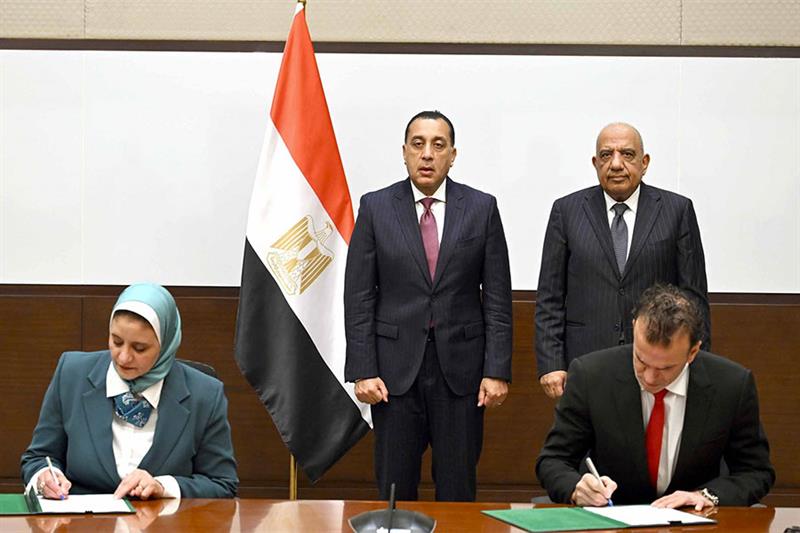By Julia Rota
In a strategic move to bolster Egypt’s position as a regional energy hub, Egyptian Prime Minister Dr. Mostafa Madbouly witnessed the signing of a cooperation agreement on Wednesday, October 15, between the Egyptian Electricity Transmission Company and the UAE-based “K&K” company. The agreement aims to finalize studies for an electrical interconnection project linking Egypt to Europe via Italy, using advanced submarine cables, paving the way for exporting clean energy to the European continent.
Details and Strategic Importance of the Agreement.
The signing ceremony took place at the Cabinet headquarters in Egypt’s New Administrative Capital, attended by Eng. Mahmoud Esmat, Minister of Electricity and Renewable Energy. The agreement encompasses the preparation and execution of final technical, environmental, and financial studies, as well as the necessary steps to commence the project’s implementation. The interconnection aims to link Egypt’s national electricity grid with Europe’s unified grid through Italy’s network, enabling the transfer of up to 3,000 megawatts of power.
This project aligns with Egypt’s ambitious strategy to establish itself as a vital energy link between Africa, Asia, and Europe. According to Minister Esmat, the interconnection with Europe is a cornerstone project for exporting surplus renewable energy produced domestically, supporting Europe’s energy transition, reducing carbon emissions, and enhancing regional energy security.
Dr. Madbouly emphasized that this agreement marks a critical step toward maximizing Egypt’s natural resources, particularly solar and wind energy from Upper Egypt and coastal regions, positioning Egypt as a “gateway for energy” to Europe.
The UAE’s Role and Gulf Partnership.
The UAE’s “K&K” company plays a pivotal role in this project, leveraging its expertise in large-scale energy projects and submarine cables. This partnership reflects the growing cooperation between Egypt and the UAE in the energy sector, building on previous collaborations such as the solar power plants in Benban. The partnership is expected to facilitate technology transfer and attract further investments, boosting Egypt’s economy and opening new export markets.
Broader Context: Toward a Regional Energy Transition.
This project is part of Egypt’s broader efforts to establish regional electrical interconnections, including links with Sudan, Libya, and Jordan. It aligns with the European Union’s goals for transitioning to green energy, particularly following the energy crisis triggered by Russia’s invasion of Ukraine, which increased demand for reliable alternative energy sources. The project is anticipated to generate billions of dollars in annual export revenues and create thousands of jobs in the energy sector.
In conclusion, this agreement represents a transformative milestone in the regional energy landscape, highlighting the potential of Arab partnerships to address global challenges. With the completion of the studies, the interconnection is expected to be operational within the next few years, enhancing grid stability and opening new avenues for international cooperation.















